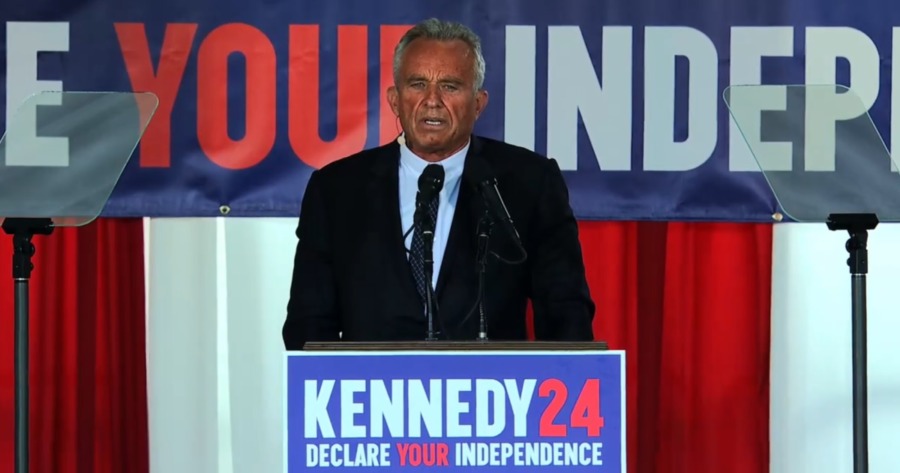In a surprising announcement last night, a familiar name to many Americans emerged into the political spotlight. Robert F. Kennedy Jr., a son of the renowned Kennedy family, declared that he was “declaring independence” from the “tyranny of corruption that robs us of affordable lives, our belief in the future, and our respect for each other.”
Robert F. Kennedy Jr. needs no introduction as a member of the legendary Kennedy family, which has produced prominent American politicians, including President John F. Kennedy. His declaration to run as an independent Democrat has captured the attention of political observers nationwide.
Running as an independent within the Democratic party is a somewhat unconventional choice. Typically, candidates identify with one of the two major political parties, Democrats or Republicans, to have a realistic chance at winning elections. However, independent Democrats align with Democratic values but choose not to be officially affiliated with the party. They may do this for various reasons, including dissatisfaction with the party’s leadership or the desire to maintain a more centrist or moderate stance.
The impact of Robert F. Kennedy Jr.’s candidacy on the Democratic vote share largely depends on his ability to garner support. If he can attract a substantial following, it could potentially split the Democratic support and siphon votes away from the Democratic nominee, which would presumably be President Joe Biden. However, the extent of this impact remains uncertain at this early stage of his campaign.
With another high-profile prominent candidate, Dr. Cornell, already in the race as an independent Democrat, Robert F. Kennedy Jr. faces competition within his niche. This division among independent Democrats might dilute their collective impact. However, the significance of their campaigns will depend on their ability to gain traction, raise funds, and resonate with voters.
How much weight does the Kennedy name carry, and is America ready for an independent President?
The Kennedy name undoubtedly carries historical significance in American politics, evoking memories of charismatic leaders and iconic moments in the nation’s history. Robert F. Kennedy Jr. inherited the legacy as a member of this illustrious family. Whether the Kennedy name can still carry the same weight in modern American politics remains to be seen.
As for the readiness of America for an independent President or a viable third party, it’s a question that has persisted for years. The two-party system has long dominated American politics, making it challenging for third-party or independent candidates to gain significant traction. Kennedy Jr.’s candidacy may test whether Americans abandon this traditional mould and explore alternative political options.
As a prominent Kennedy family member, his candidacy and others like Dr. Cornell reflect the growing desire for alternative political voices. The impact of these independent Democrats on the 2024 election remains uncertain. Still, their campaigns may serve as a litmus test for the future of third-party and independent candidates in American politics.









